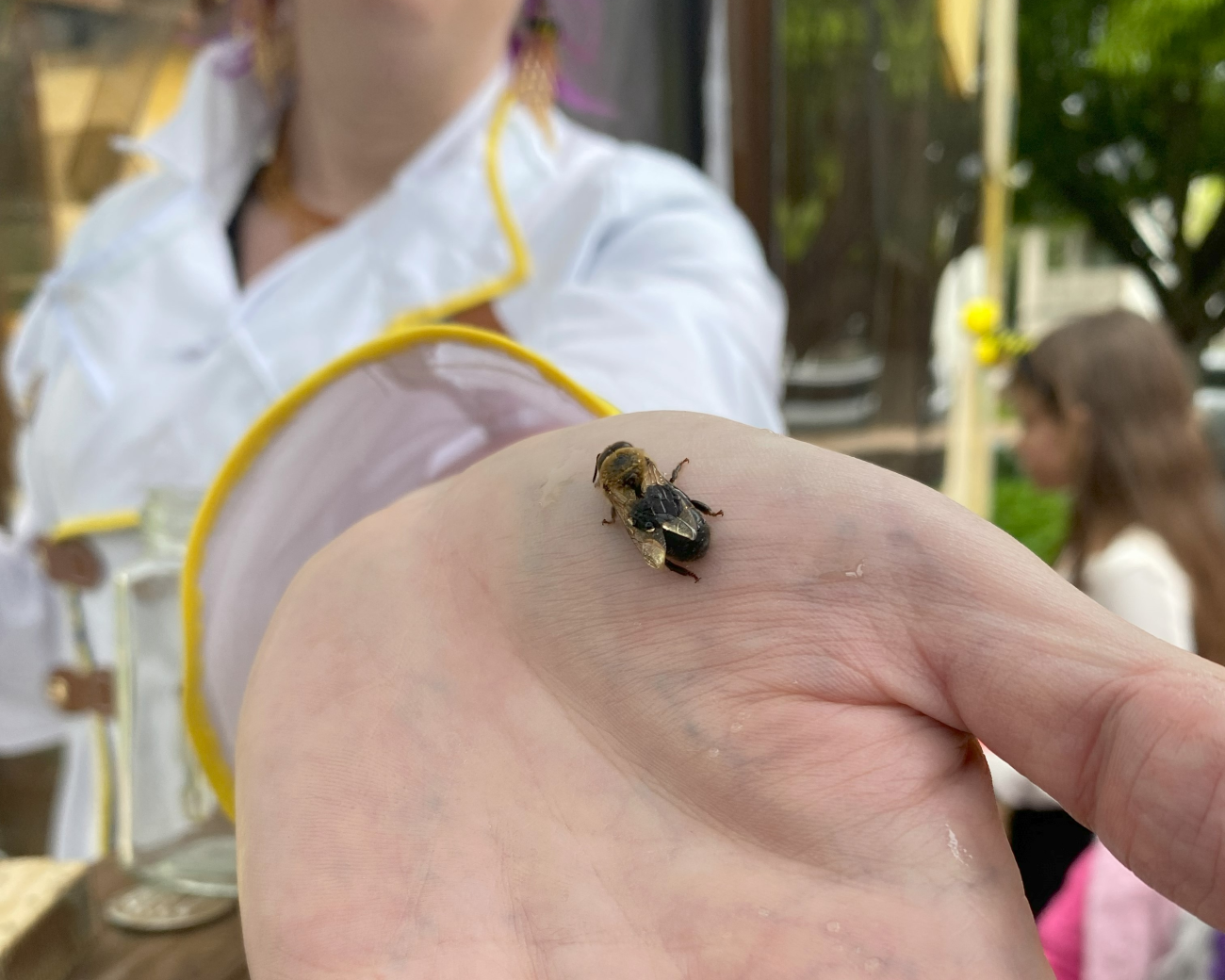Festival raises awareness about bees and importance of natural yard care
At the annual West Seattle Bee Festival, pollinator pals like honeybees are celebrated and community members brainstorm ways to protect pollinators through natural yard care and reducing use of harmful pesticides.

The West Seattle Bee Festival returned this spring with a full lineup of family-friendly activities and environmental education. The event located at the West Seattle Bee Garden featured live bee demonstrations and local organizations offering resources on pollinators, gardening and sustainable practices.
While the festival offers a fun atmosphere for attendees of all ages, its focus underscores a growing environmental concern: the decline of bee populations. In recent years, beekeepers and scientists have reported steep drops in honeybee colonies across the country. According to entomologists at Washington State University, honeybee colonies are projected to decline by 70 percent in 2025.
Research is still underway on the cause of this year’s steep decline, but one of the contributing factors to past honeybee population drops has been pesticides commonly found in lawn and garden care products. Studies have shown that certain insecticides and herbicides can interfere with bees’ ability to forage, navigate, and reproduce. These impacts not only threaten bee health but also jeopardize the pollination of crops and native plants critical to food systems and ecosystems.
“Refraining from using pesticides can go a long way towards helping protect bees and other insects,” said Grace Fusani, natural yard care project manager and outreach specialist with Garden Hotline. “Even if it just gets on the leaf of the flower they’re resting on, it can hurt them and in turn hurt us.”
Fusani was one of several experts on hand who shared information on how residents can reduce their use of toxic yard care products and support pollinator health through natural yard care practices.
“Rather than using pesticides, another great way to get the garden we want is to cultivate an environment with a full food cycle in them,” Fusani said “Attract lady bugs and other things that will eat the pests that annoy you (like aphids).”
By encouraging a complete ecosystem in your garden where beneficial insects help keep pest populations in check, you can reduce the need for chemical interventions. Planting marigold, lavender, calendula, yarrow and other flowers that are high in nectar is a great way to help bees and other pollinators while also attracting other bugs that will keep the aphids and other insects at bay.
“We need to love our insect friends just as much as our mammal friends who get a little more attention,” Fusani said. “They’re all a part of keeping our ecosystem healthy and happy.”
Visit the Haz Waste Program’s website for more information on safer, natural yard care and hazardous waste disposal. You can also check out the events page to find more information about upcoming opportunities to learn more about a variety of natural garden and lawn care tips and topics.
 Translate
Translate